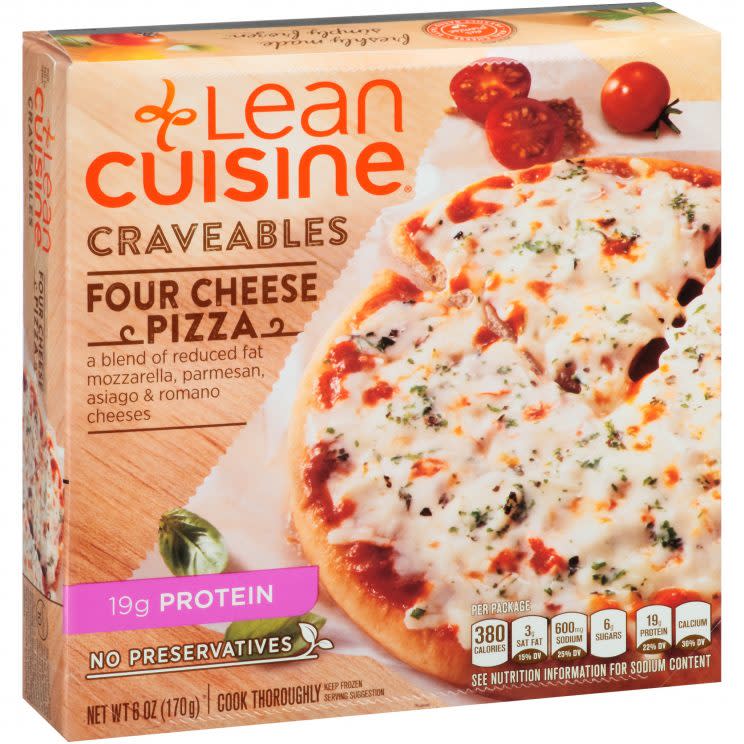Lean Cuisine Is Being Sued for Using a Preservative

When you buy packaged food, it’s pretty safe to assume that it will contain some type of preservative. But one woman is challenging that assumption — and she’s suing over it.
Courtney Ross has filed a class action suit against Nestlé, which makes Lean Cuisine frozen dinners, TMZ reports. In Ross’s filing, she says she bought Lean Cuisine’s Four Cheese Pizza and paid what she says is a premium price for what was advertised as a preservative-free meal (she paid $3.39 for it, according to court documents). According to Ross, she checked the label and saw her pizza contained citric acid, a common preservative. However, the box clearly says “preservative free” on the label.
But Ross says that other frozen food companies make it clear when they use preservatives, citing Hungry Man, Jimmy Dean, and DiGiorno as examples. Ross also says plenty of other Lean Cuisine meals contain citric acid, including the Asian-Style Pot Stickers, Shrimp Alfredo, Mushroom Mezzaluna Ravioli, and Ranchero Braised Beef.
You’re Probably Drinking Your Wine Wrong
“By deceptively marketing the products as having ‘No Preservatives,’ [Nestlé] wrongfully capitalized on, and reaped enormous profits from, consumers’ strong preference for food products made free of preservatives,” the lawsuit, which was obtained by ClassAction.org, states. The lawsuit also alleges that several Lean Cuisine products are marketed in a way that is “deceptive” to consumers.
New York-based registered dietitian Jessica Cording tells Yahoo Beauty that citric acid is a very common additive that’s used in foods like soft drinks, sauces, and candy. “It’s naturally present in sour foods like lemon, lime, and oranges, and acts as a preservative [in packaged foods],” she says. “It’s generally considered safe as a food additive and often used to lend a sour note.”
Citric acid also appears in some detergents and polishes because of its abrasive quality, Cording points out. “Of course, it’s in the context of a product with other compounds that are not edible, and the amount of citric acid is much more concentrated,” she says.
Citric acid doesn’t really have any nutritional benefits, but it can cause tooth decay or stomach irritation if it’s consumed in large quantities, Cording says. The Food and Drug Administration (FDA) lists citric acid as “generally recognized as safe,” meaning it’s considered safe to ingest. However, the FDA also considers it a preservative.
In general, Cording says it’s best to eat mostly whole, unprocessed foods. “But once in a while, a small amount of something that uses citric acid as a preservative is safe, and not something to lie awake worrying about at night.”
The suit says that Ross will leave it up to a jury to decide how much money she should be awarded, but she also wants a “corrective advertising campaign.”
We reached out to Nestlé for comment. “We are aware of the lawsuit, but have not been formally served,” Roz O’Hearn, Corporate & Brand Affairs Director at Nestlé , tells Yahoo Beauty. “The allegations are baseless and we will vigorously defend ourselves. All Nestlé products and labels comply with FDA and USDA regulations.”
Let’s keep in touch! Follow Yahoo Beauty on Facebook, Twitter, Instagram, and Pinterest.
